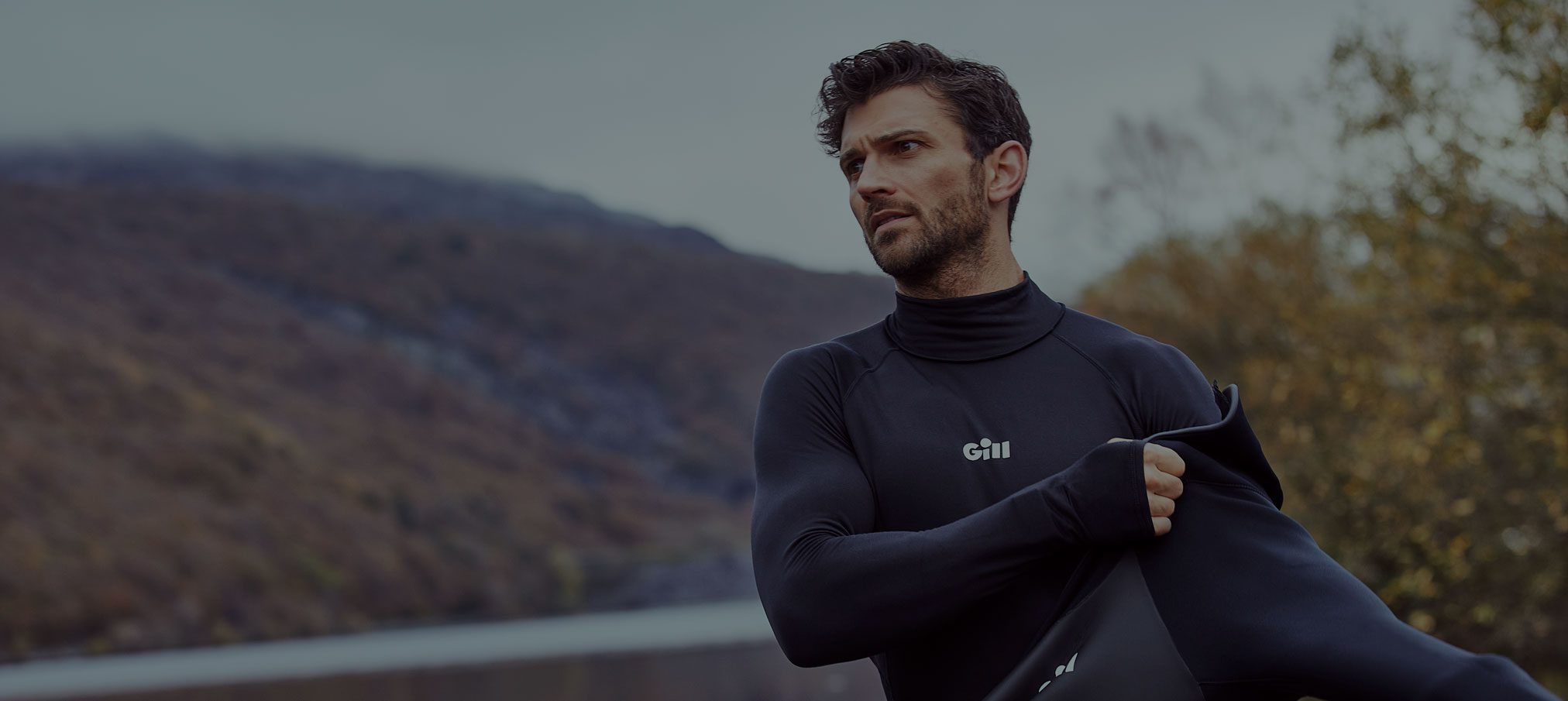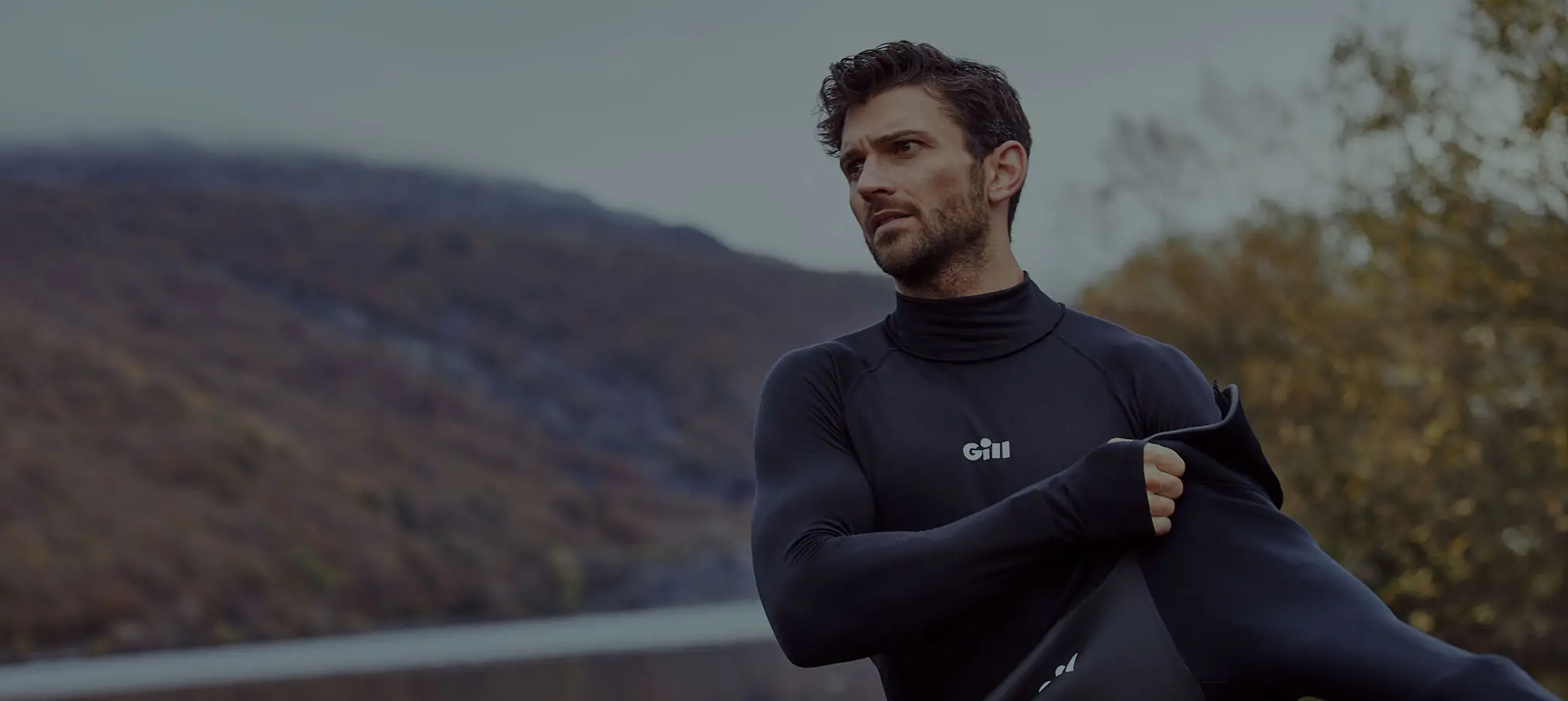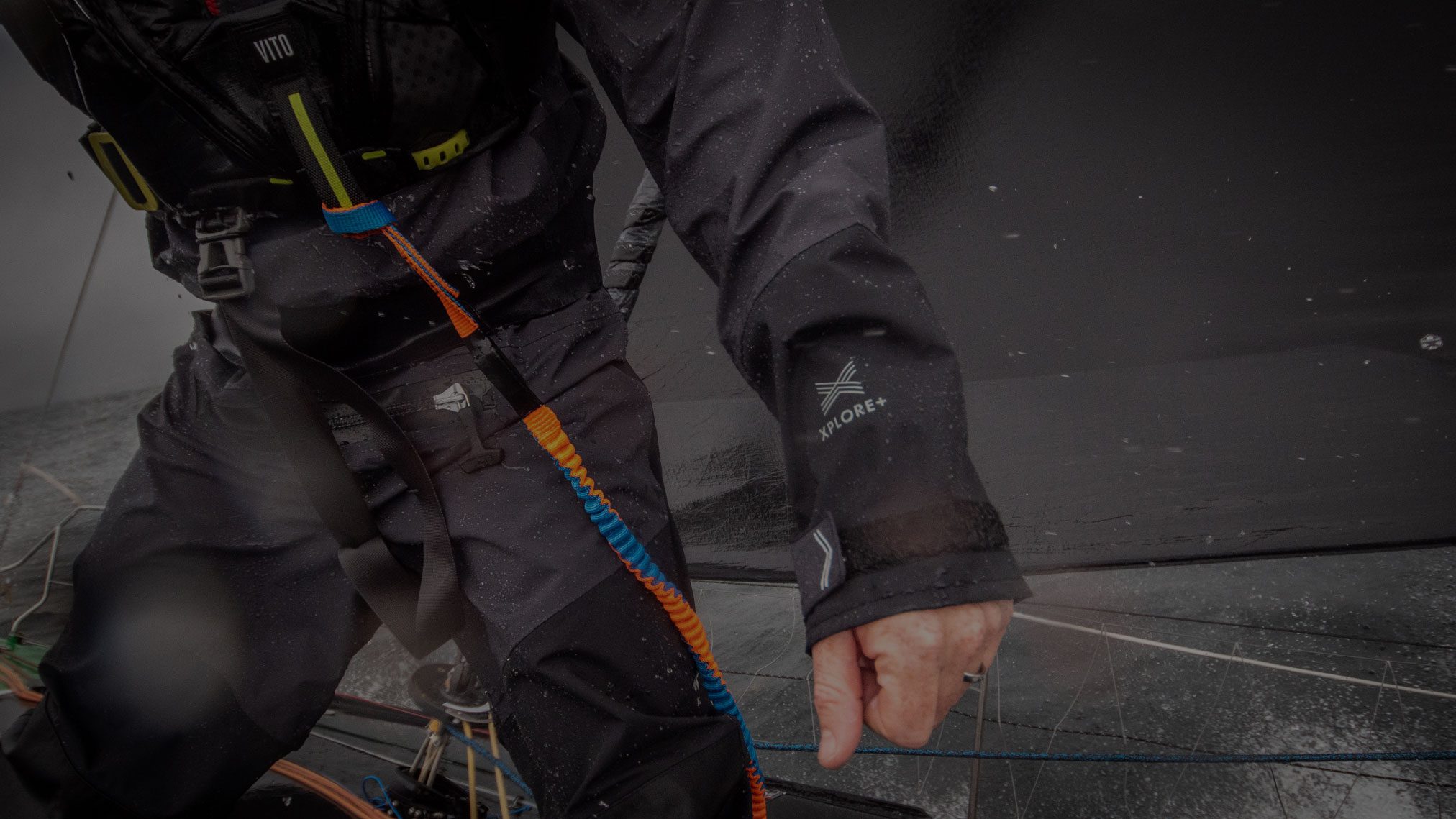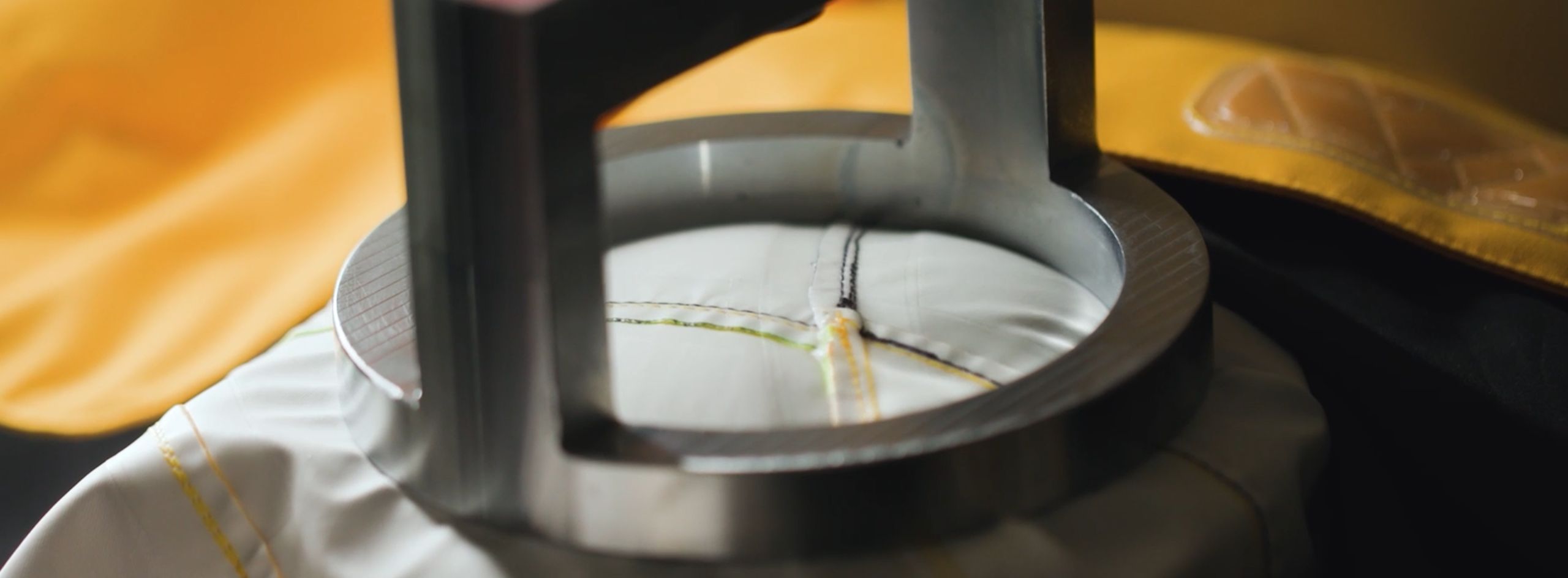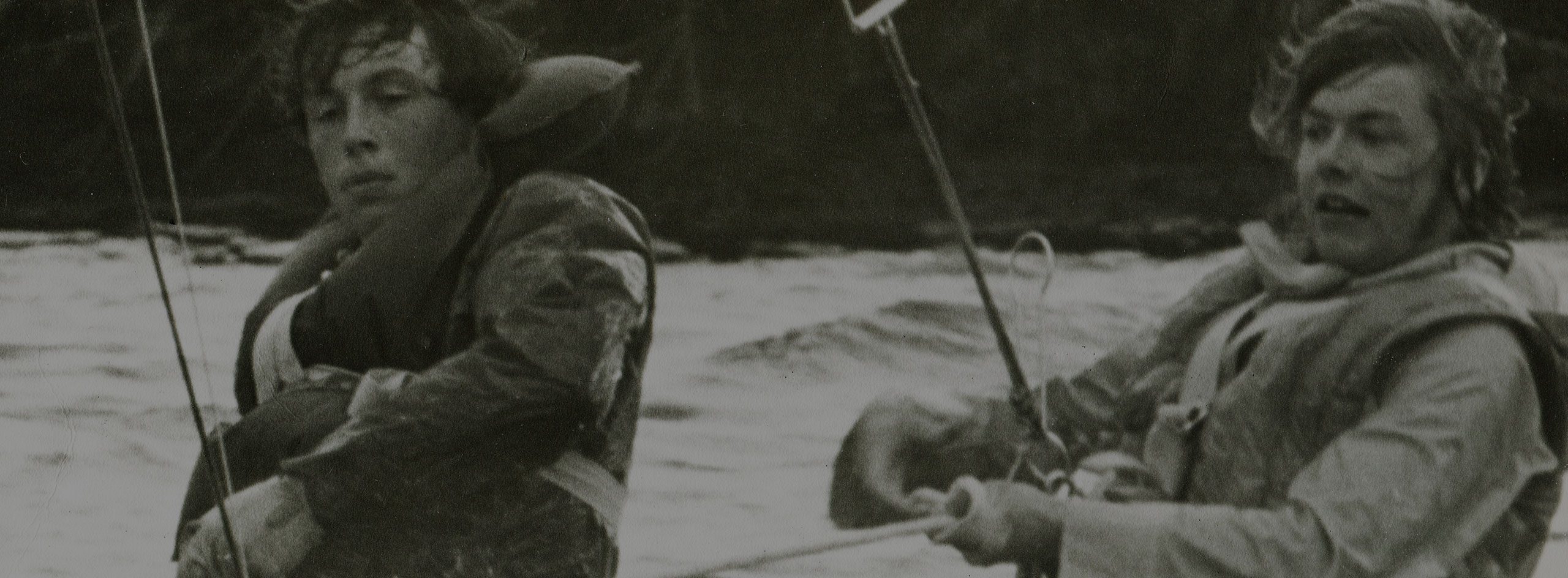A new year brings new opportunities and for many of us a mindset to achieve a new goal or maybe try something new you’ve been putting off. In this blog we, with the help of some of our athletes and ambassadors, are going to tell you why taking up a new watersport this year is the best thing you’ll do and how to go about this.
Why are watersports popular?
Watersports fuel your sense of adventure, can provide a great adrenaline rush and are good fun all year round, providing you have the right kit! You’ll feel the benefits of taking part in watersports both physically and mentally. Physical exercise releases endorphins which make us feel happy and this combined with the relaxed and calm feeling that being in water gives, results in an overall good mood. Regularly taking part in a watersport increases your stamina and helps you build up strength in your body.
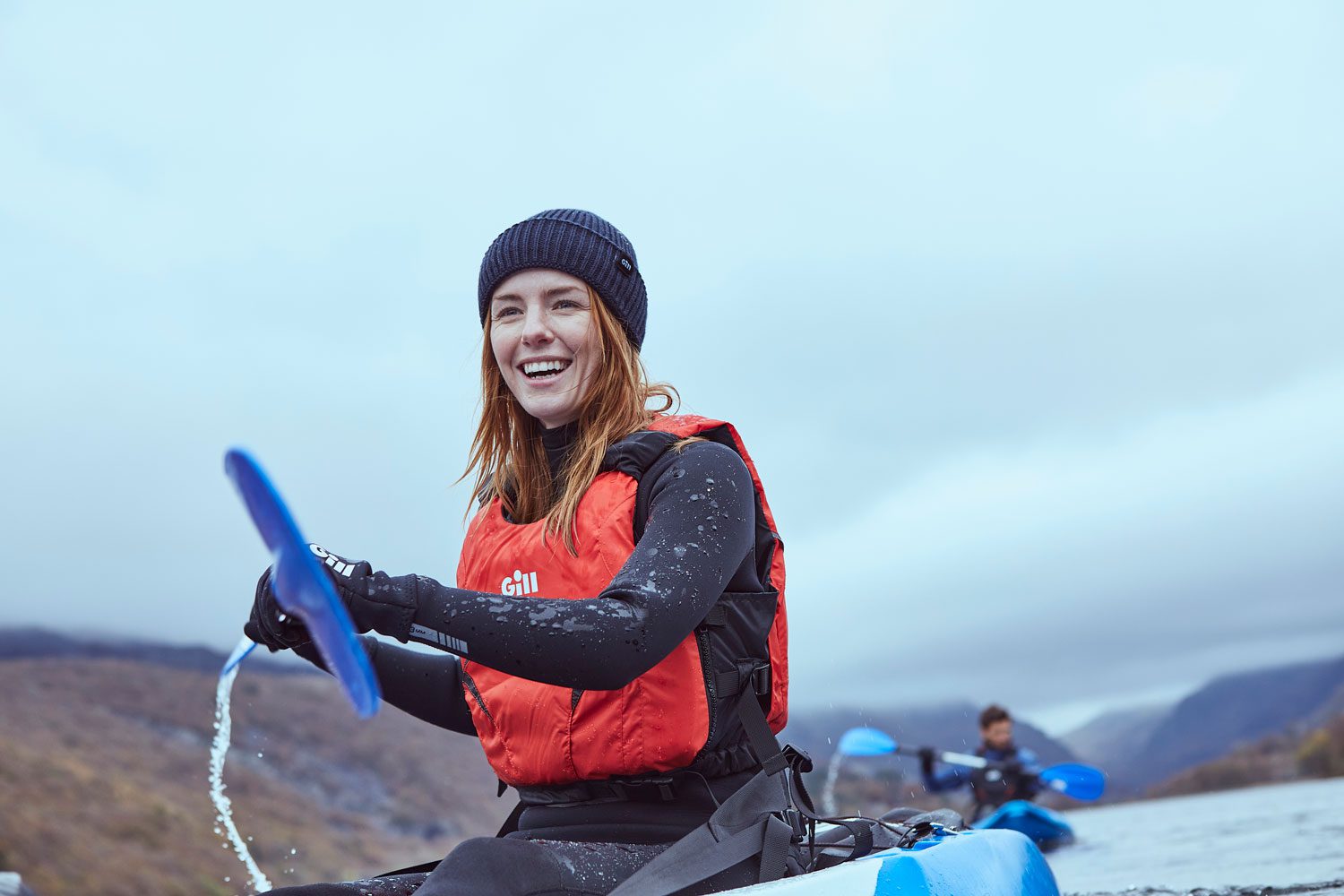
Watersports we recommend:
Sailing
If you want to try a sport that helps you build concentration and coordination skills whilst being in fresh air out on the water, then sailing may be a good sport for you to try. People of all fitness levels can get started as you can try out more physical dinghy sailing or give cruising on a yacht a go.
Dinghy sailing is the most popular way to learn to sail as the boats are easier to handle. A dinghy boat is a small open boat with a sail which is used to harness the power of the wind to move you through the water. We asked Marie Barrue, a French professional sailor who sails a single-handed boat (sailed by one person) called a Laser, to tell us why she enjoys dinghy sailing, she said: “I enjoy being outside, having the feeling of freedom and sharing it with my friends. I also love that anywhere around the world you can find dinghies to sail in different places, it is a door opening to the world!”. Marie started sailing when she was 4, on weekends and during school holidays, but you can start sailing at any age. A good place to start is by speaking to your local sailing club as they will have equipment you can rent and short courses you can try to see how you get on.
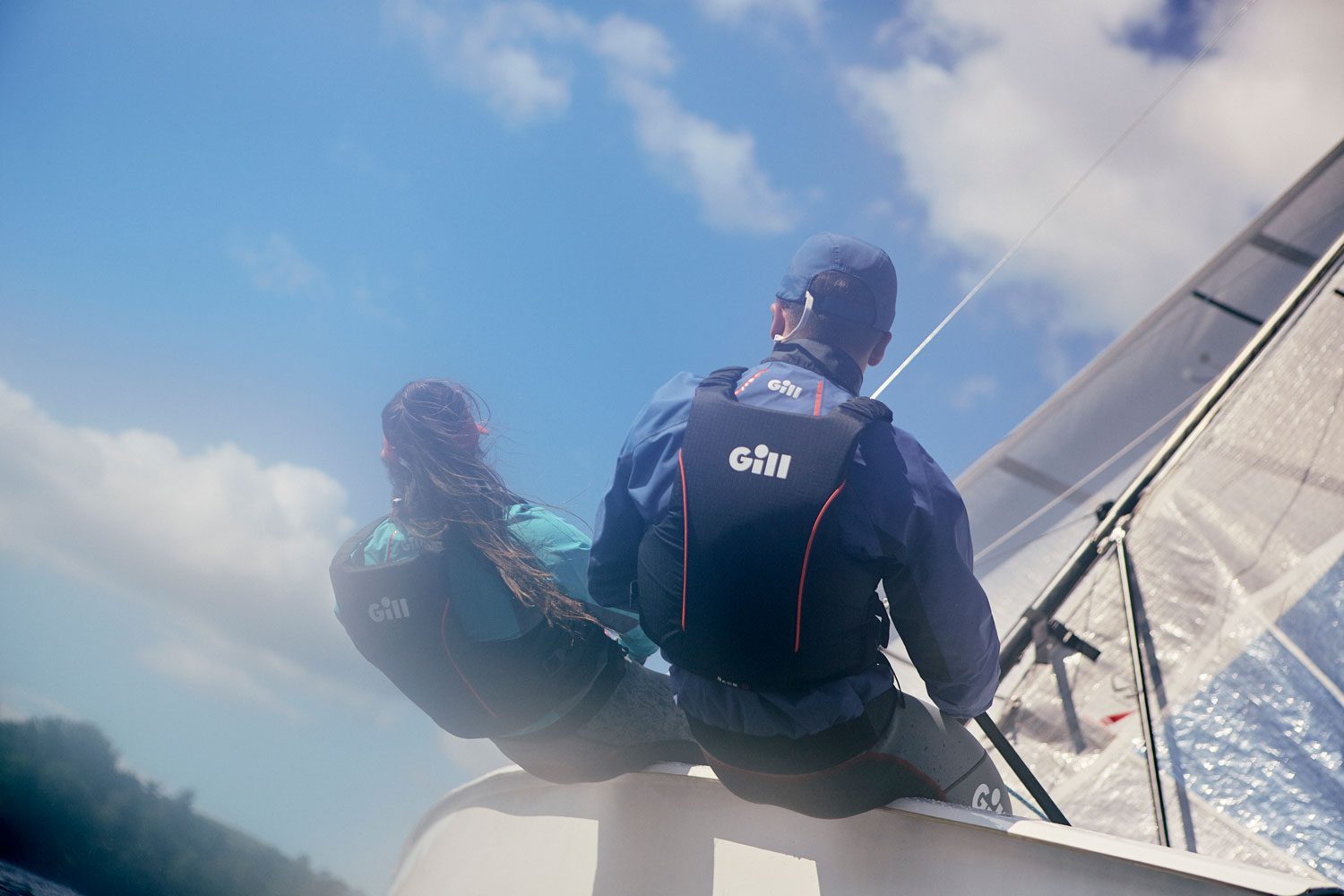
Marie let us know that the most important piece of kit for sailing is a life jacket, like our Pursuit PFD. She also said “I cannot sail without my hikers and visor. In strong wind I also need my boots and when sailing in cold places a must have is a jacket to keep warm”. When sailing in colder waters a wetsuit may also make you much more comfortable.
SUP
Stand Up Paddleboarding (SUP) is great for all abilities and ages to try. It’s a fun and peaceful watersport which gives you the freedom to explore nature whilst getting a great full body core workout. But don’t just take our word for it! We spoke to India Pearson about why she loves to SUP, “Paddleboarding is a form of meditation for me. Meditation is about clearing the mind, to let go of thoughts and feel completely present in the here and now – paddleboarding does this so well. You are so focused on staying on the board, becoming aware of your breath, your body, the sounds of nature around you, that during your time on the board – nothing else matters.”
Whilst you are learning to SUP you can kneel or sit and paddle until you are more confident standing. Once you have got the hang of staying balanced, you can explore the different activities you can do on a paddleboard like: yoga, fishing, touring and surfing.
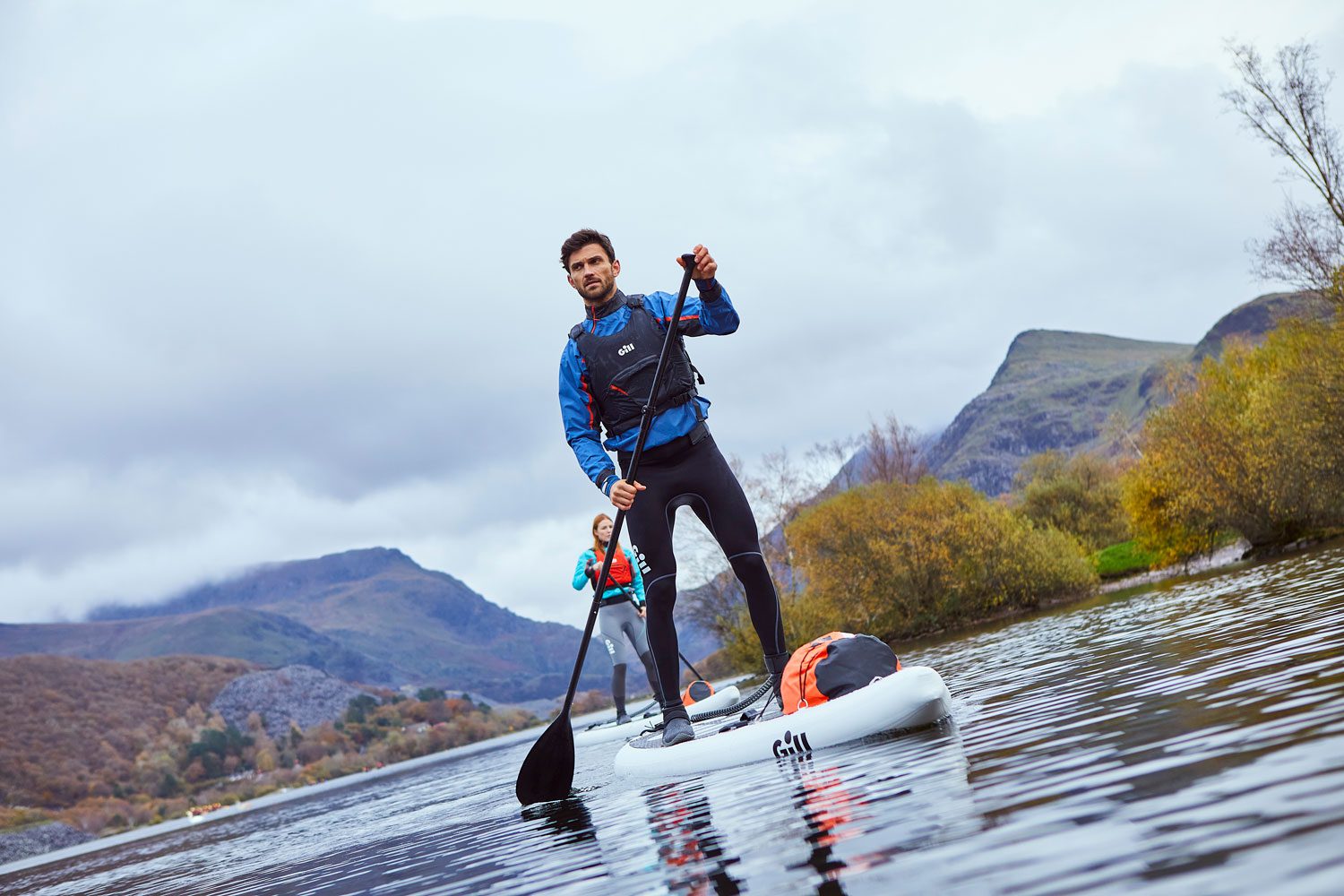
One of the upsides of SUP is that you don’t need much kit; all you need is some clothing (which doesn’t need to be super high-tech), a board, a paddle and some water whether that is a river, lake, canal or the sea. India loves to wear her Gill Dynamic Long Jane because it is sleeveless, so it gives her arms great mobility whilst moving on the board. For an extra layer she wears her Gill ThermoShield Top and loves how it is fleece lined as well as waterproof, meaning it’s great for the cold and wet. For a SUP beginner she recommends a PFD and the Pursuit Wetsuit because it is comfortable and can be worn all year round so you can guarantee you’ll get your money’s worth out of it. There’s also no need to make the big investment of buying a board until you are ready as they are easy to rent, either from a SUP club or some brands offer rental schemes. If you would like to start SUPing, find your local watersports club and get a few lessons to learn the basic techniques and safety information, or reach out to someone you already know who SUPs and ask if you can go along with them on their next outing.
Kayaking
Kayaking is an adventure sport which involves moving through water, using a double-ended paddle, in a small watercraft called a kayak. Improve your strength and flexibility whilst having fun, as paddling is a low impact and easy exercise that focusses on your back and arms. Kayaking is very varied; you can get kayaks that can seat up to 4 people at once or go solo, you can work on learning tricks and skills or just go cruising.
James Ibbotson, a team GB freestyle kayaker says that kayaking is great for making friends, gaining new experiences and challenging yourself. He told us “I started kayaking back when I was 8 years old in a swimming pool during the school holidays. It was a way for my parents to try and keep me, and my 3 siblings, busy. We loved doing it.” James recommends that anyone who is interested in starting kayaking joins their local club and tries as many different disciplines as possible. Some examples are: white water kayaking, kayak fishing, kayak surfing and sea kayaking.
James told us that good thermals are a must have when he is kayaking, and he would recommend that a beginner focuses on having good kit to stay warm. Thermals such as our Hydrophobe Thermal Top, neoprene shoes, and a changing robe such as the Gill Aqua Parka for when you come off the water will make a huge difference. A buoyancy aid is also an essential to ensure you stay safe on the water, these can be borrowed or rented whilst you are learning. The rest of the kit can come later on.
Waveski
If you want to try something new and up and coming, why not give waveski a try? The sport is a mix between kayaking and surfing and combines the power of a double-ended kayak paddle and the manoeuvrability of a surfboard. The participant sits on a seat with a seatbelt and foot straps to keep themself in place. We spoke to Lucy McQueen, a waveski and kayak surf champion, who said “It’s an amazing feeling to catch a wave, the buzz you get is addictive. It’s not just exercise, it’s head space and being away from the hustle and bustle. It’s also an amazing community globally, you can go away to most places and find a waveskier. They will more than likely invite you to their home and show you their local spots”.
Lucy recommends joining a canoe club to begin with, where you can be taught the art of rolling as this will make you more confident in the water. All paddle skills are interchangeable so you may want to try kayaking or SUPing first so you feel less of a beginner. You should also contact the community on Facebook and Instagram. England Surf Kayak is running a big initiative in 2023 to get more people involved, you can check out their Facebook page here.
A good wetsuit, buoyancy aid and boots are essential kit for the sport, Lucy also let us know that a paddle that is light and strong is also essential, and It’s important to get a spray deck that fits the deck of your boat so it doesn’t pop or let water in. But before you are ready to fully commit to the sport you should be able to rent or borrow these.
o summarise, the best ways for you to get into watersports are:
- Find your local watersports centre and try a few lessons first, most lessons will include kit and equipment so you can try without needing to make an initial investment. There’s usually the chance to try lots of different watersports too, so you can try them all and find out which you enjoy the most.
- Stay connected; create or join a group online to swap tips, or in person to practice with. Watersports are safer and more fun when you are doing them in a group.
Kit we would recommend for all watersports
Versatile kit that will perform for you, whatever you are doing, is a great idea if you are wanting to practice several watersports. Not only does it keep your kit costs low, it’s also a more sustainable approach as it lowers your consumption.
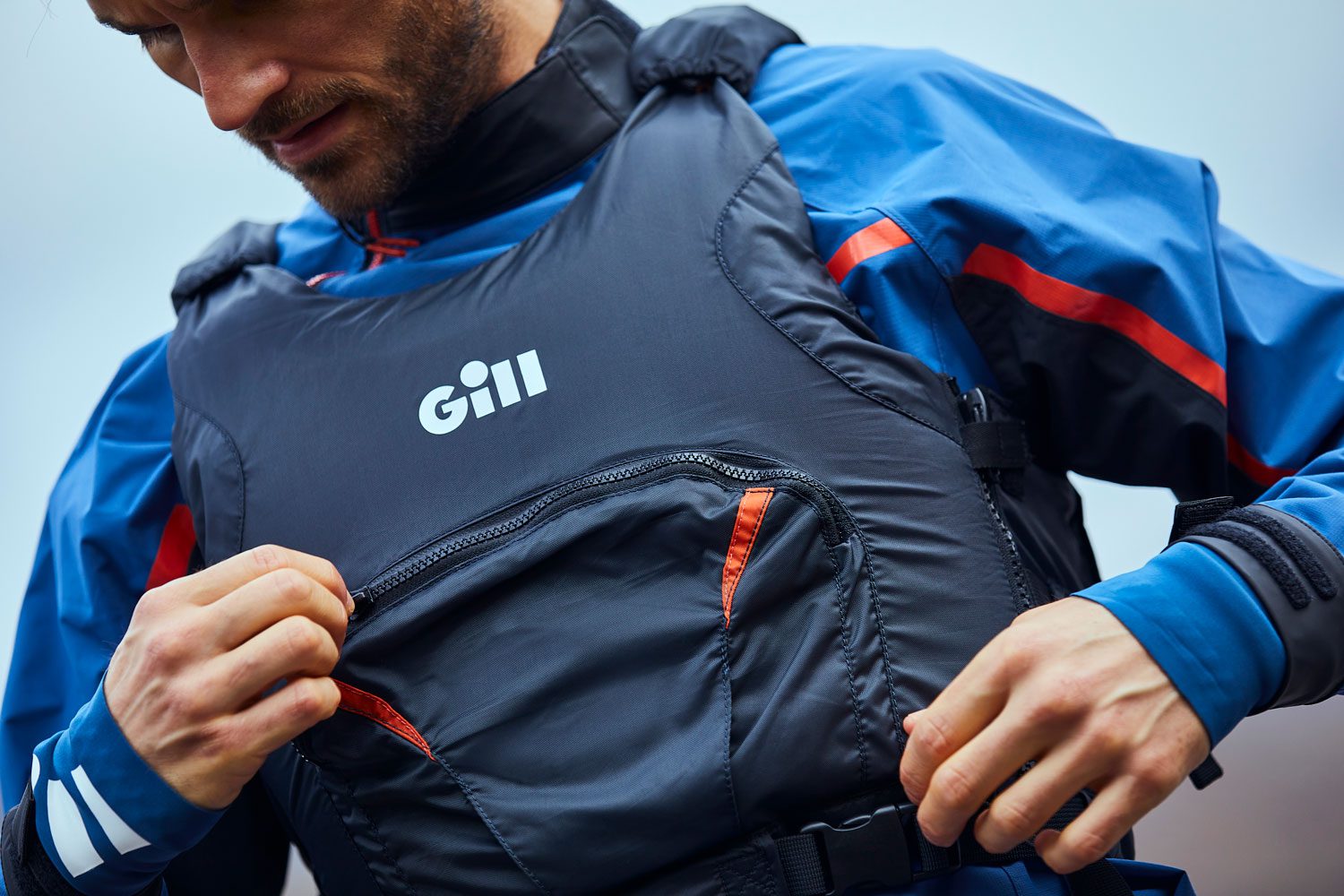
A key thing if you are going to be on the water would be to invest in a good buoyancy aid to keep you safe. Our Pursuit Buoyancy Aid is perfect for a wide range of activities because it has a practical self-draining zippered front pocket and reflective detailing front and back for visibility, and the lightweight, minimum bulk design allows full freedom of movement.
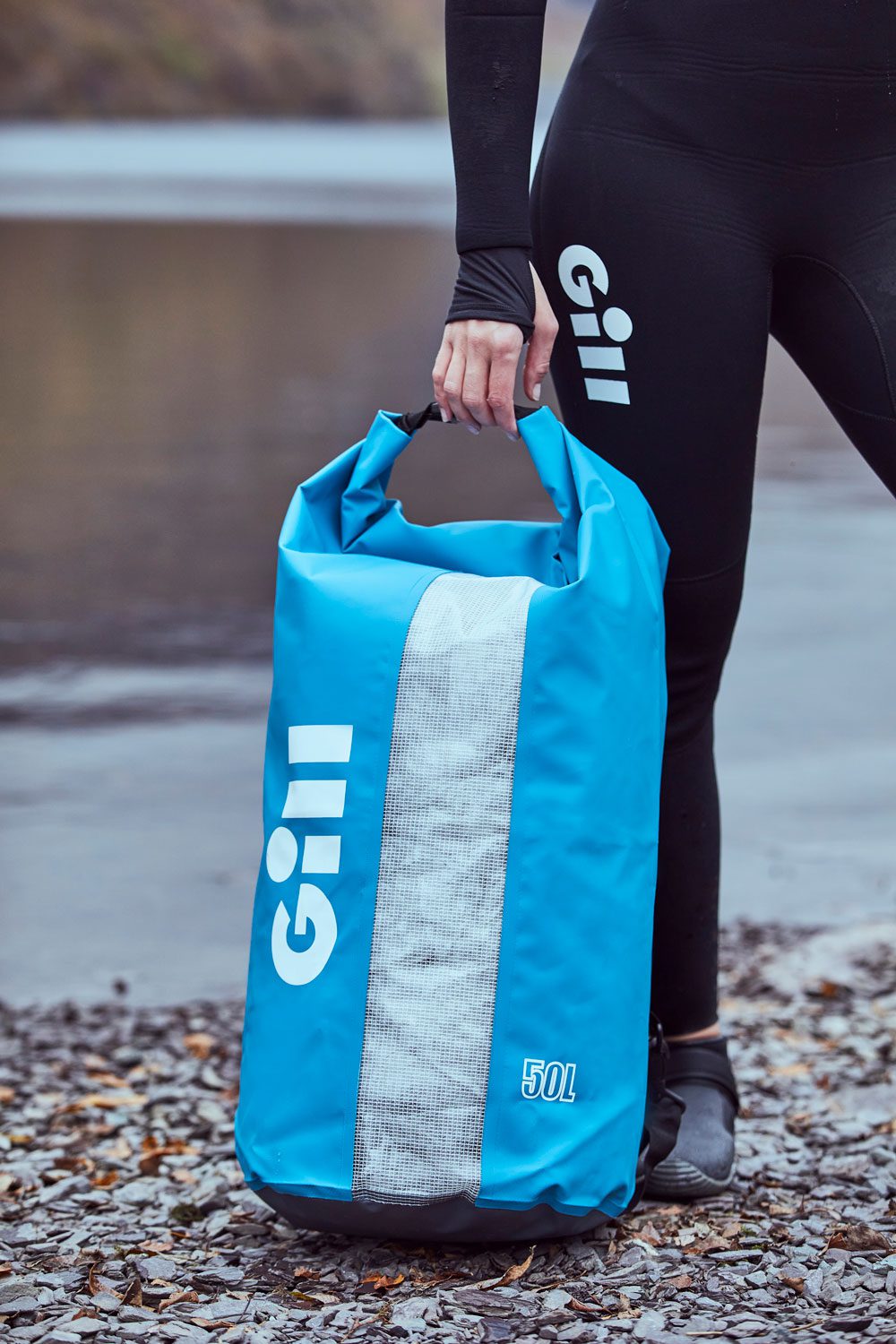
Dry bags are essential for keeping your valuables safe and dry whilst you are around and on the water. These can come in a wide range of sizes and for many different functions, you can even get a tow float for wild swimming that doubles as a dry bag so you can swim with your belongings attached to you. Check out our range of Waterproof bags, from handy changing mat/bag combos to small 10L bags
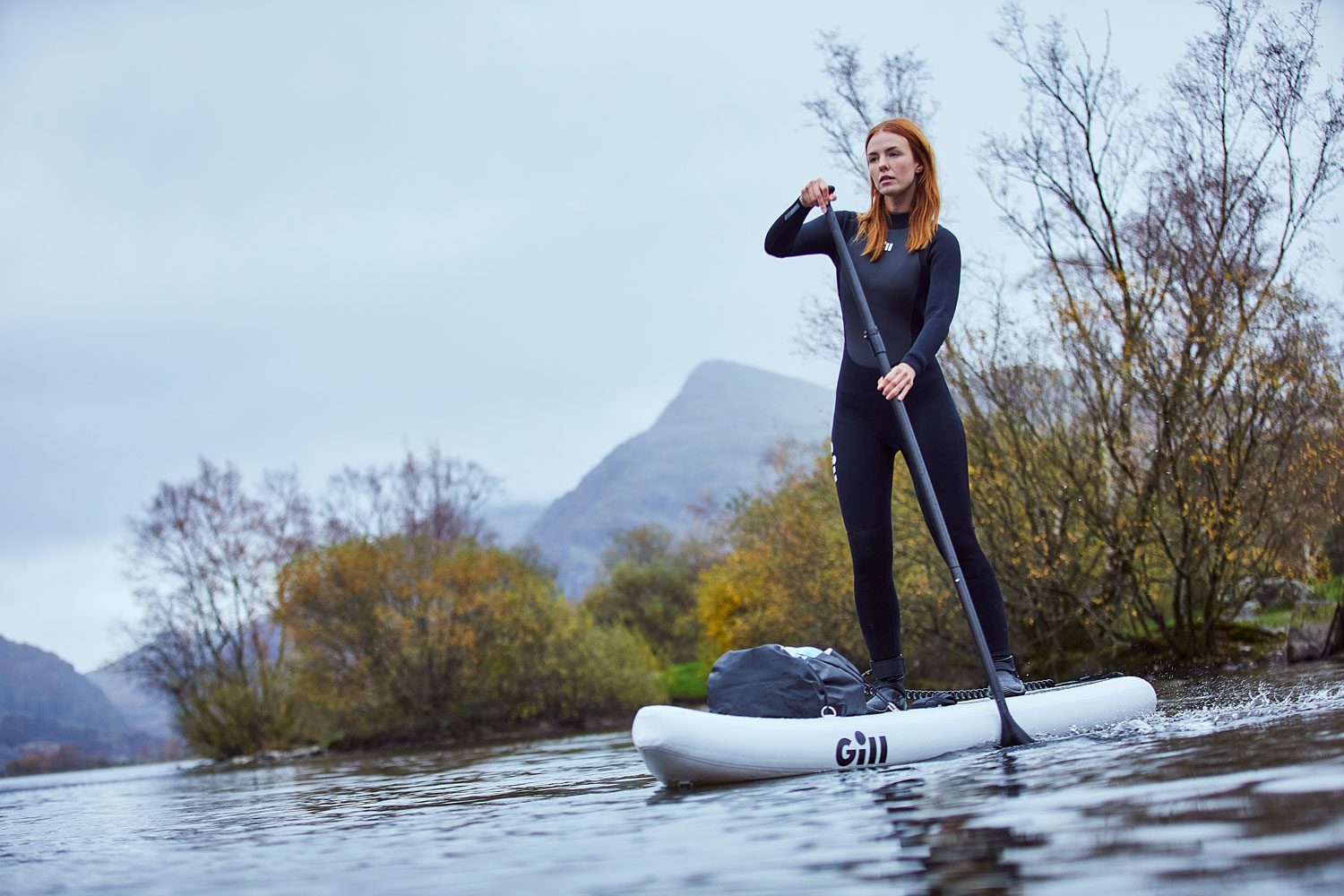
For most watersports where you going to be in (or at risk of falling in) water, we would recommend wearing some kind of neoprene. This could be a wetsuit (try our 4/3mm Pursuit full arm wetsuit) or there are other options, such as our Dynamic long john/jane or versatile Women’s Pursuit neoprene leggings and jacket. Try layering our Hydrophobe thermal top under your gear for an extra layer of warmth to keep you going in colder conditions.
A big thank you to the athletes who took the time to be a part of this blog:
Marie Barrue – @mariebarrue
India Pearson – @with_india
James Ibbotson – @jibbo93
Lucy McQueen – @lucilletheseal
Follow us on social media @gillmarine and keep up to date with new product launches and the latest on what our athletes and ambassadors have been up to.






